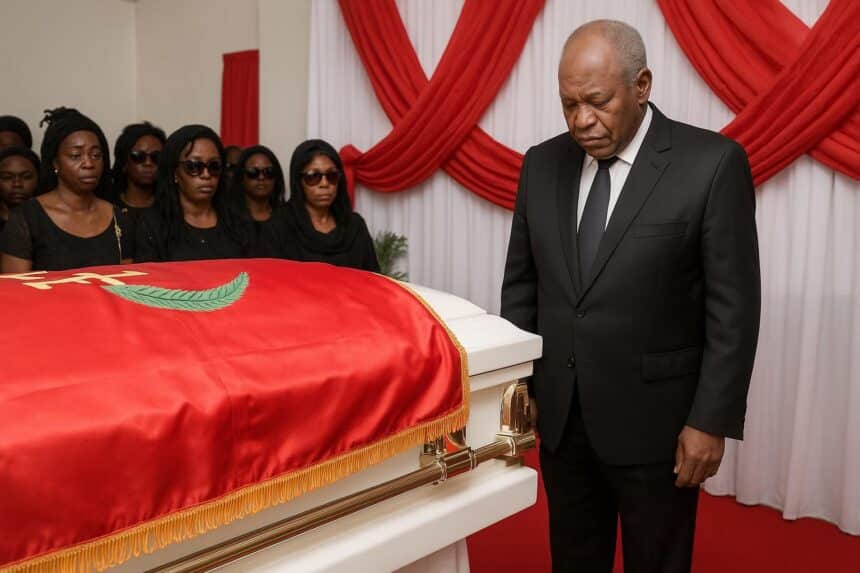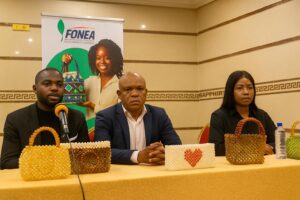Final farewell at the heart of Brazzaville
The midday sun over Brazzaville’s downtown cemetery held a respectful silence on 17 September as the flag-draped coffin of Vital Balla was lowered into the earth. The veteran statesman, who passed away on 24 August at 89, received military honors and prayers from religious leaders.
- Final farewell at the heart of Brazzaville
- Diplomats salute a lifelong bridge-builder
- Party comrades recall a founding flame
- From workshop floors to national podiums
- A diplomat with a traveller’s curiosity
- Guardian of dialogue at home
- ACAP’s Mandela and the inter-generational torch
- Young voices inspired by his modest path
- Quiet resting place, living memory
Crowds spilled through the iron gates. Party cadres in red scarves stood beside market vendors who had known him only from evening news reports. The sight of the nation’s tricolour folded with care brought a hush seldom heard in the bustling capital.
Diplomats salute a lifelong bridge-builder
Cuban ambassador Indira Napoles Coello bowed for a long moment before the casket, a reminder of Balla’s posting to Havana in 1976, which opened cultural and medical exchanges still active today. Her Venezuelan counterpart, Laura Evangelia Suárez, echoed the gratitude of Latin American partners for his early solidarity.
“He believed friendship between peoples begins with simple gestures,” Coello told reporters after the service, recalling evenings where Balla mixed folklore songs of Bouenza with Cuban boleros.
Party comrades recall a founding flame
Inside the PCT’s Mpila headquarters, Secretary-General Pierre Moussa held his voice steady while calling Balla “a genuine beacon of conviction whose counsel we sought until the eve of our sixth congress”. Red carnations lined the hall, each representing one of the party’s founding members still alive.
Ida Victorine Ngampolo, herself on the committee of honour, spoke of a modest man who never boasted about his matricule number 32. “A light has gone out,” she whispered, “yet its glow remains to guide our younger militants.”
From workshop floors to national podiums
Born 13 December 1936 in Madingou, Bouenza, Balla began as a maintenance apprentice in 1956 before rising to chief administrator of the SAF network. Colleagues remember an engineer who never left the factory without greeting every shift, a habit he carried into politics.
His technical insight earned appointments to oversee industrial equipment imports, a strategic role during the young republic’s push for self-reliance in the 1960s. Former co-workers interviewed by Radio Congo said he kept a slide rule in his pocket long after calculators became common.
A diplomat with a traveller’s curiosity
Posting to Cuba during the Cold War turned Balla into what friends called a “citizen of the world”. He later helped launch the National Volunteers for Development in 1986, promoting agricultural missions between Brazzaville and provincial towns.
In 1989 he entered the People’s National Assembly, then the transitional parliament in 1991, gaining a reputation for calm debate. Journalists of the era note he rarely left a session without shaking hands across party lines.
Guardian of dialogue at home
Appointed national mediator in 1992, Balla travelled dusty roads from Impfondo to Dolisie, listening to village elders and youth leaders under mango trees. His field notes, kept in blue notebooks now archived at ACAP, emphasised patience and humour as keys to resolving local disputes.
A 2011 decree brought him back to the presidential palace as adviser on special missions. Insiders recall he would arrive before sunrise, often carrying fresh newspapers for younger aides and urging them to “read widely, speak gently”.
ACAP’s Mandela and the inter-generational torch
At ACAP headquarters, chairs were draped in white cloth as president départemental Rémi Floria Massamba addressed members. He described their late “house Mandela” whose compassion steered countless exchange programmes. Balla had recently approved scholarships for digital media trainees, insisting “peace now includes online spaces”.
Massamba promised to protect the “library of experience” left behind, citing Balla’s handwritten letters encouraging youth to pair patriotism with global openness.
Young voices inspired by his modest path
Outside the funeral tent, 22-year-old sociology student Grâce Nsimba said she discovered Balla through a campus debate on civic duty. “We think politicians seek showmanship, yet he stayed humble,” she noted, clutching a small Congolese flag.
Her classmate, striker in the Diables Noirs reserve team, added that Balla’s support for local sport academies proved a public servant could nurture both stadium dreams and parliamentary bills.
Quiet resting place, living memory
As the last shovelful of red earth settled, a gentle evening breeze rustled the nearby flame trees. Family members placed a simple granite marker engraved with his motto: “Serve with heart.” Visitors later laid wild bougainvillea, a nod to his Bouenza roots.
Caretakers say the grave already attracts early-morning walkers who pause for reflection before heading to work. In this way, the city cemetery gains a new corner of inspiration, and Vital Balla continues his dialogue with passers-by—wordlessly yet powerfully.






















